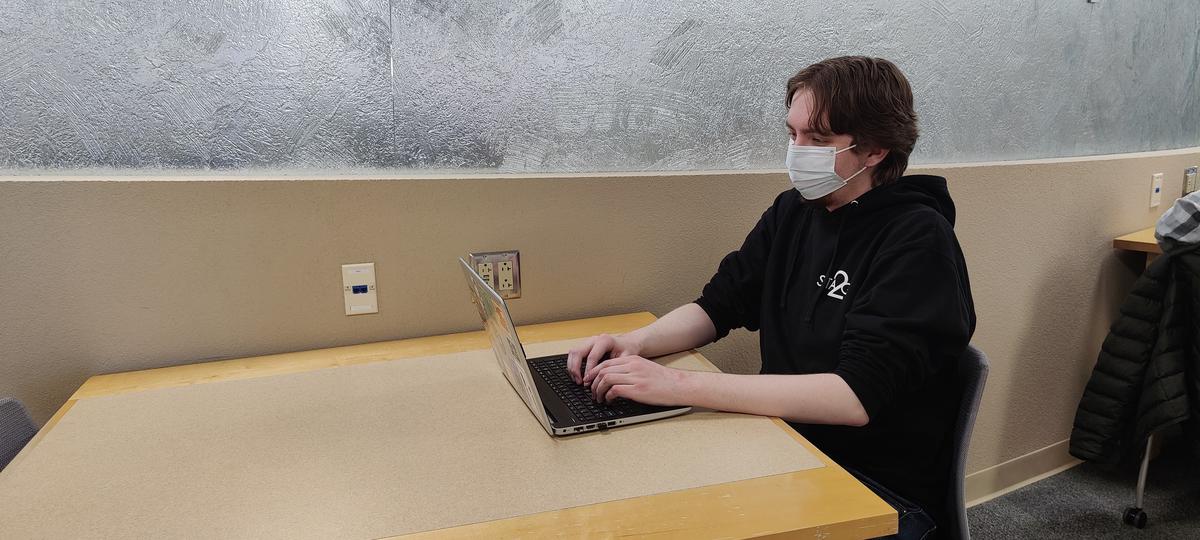As a kid I always loved reading, and appreciated the amazing stories authors could create with their words. For as much as I loved English classes growing up, there was some sense in which they made reading start to feel like a chore, and studying language in these classes felt like
learning a long list of rules for what is and is not allowed. Eventually, this love of language I used to have went away.
Taking linguistics classes at UMD brought that love for language back into my life and made me interested in learning about language again. I took Introduction to Linguistics as a required class for a different major, not expecting much of anything. At the end of that semester I immediately signed up for two more linguistics classes, and I’ve now taken at least one linguistics class every semester since then.
Linguistics is the scientific study of language, which I know sounded scary to me when I first heard it. I thought I’d just be having a repeat of my elementary school English grammar classes, learning strict rules that I had to follow. Linguistics talks about rules for language, yes, but it is interested in discovering and explaining the mental rules for language that all humans have instead of just memorizing a set of rules that someone decided upon a hundred years ago.
Language is constantly changing, and linguistics fully recognizes and embraces this change. In our own lifetime, we’ve seen how the rise of new technology has led to the creation of entirely new words. We now Google information, Snap our friends, and Tweet our opinions (for better or for worse). At the same time, other words and conventions are no longer part of the way we speak, and have fallen out of use. It is impossible to try and force language to stay frozen in time, so we must study it as the evolving entity that it is. That’s why we have linguistics.
The more conceptual courses in linguistics offered here allowed me to learn the different theories that have been proposed to explain what it is that is going on in our brains when we make and interpret language. Looking at what I’m writing to you right now, I have a set of rules in my brain that allows me to use 26 arbitrary characters humans created to communicate with you, and you’re able to read what I’ve created and understand what I’m saying. Linguistics is all about working to explain what these rules we both have could be, readjusting those theories to one day explain every single sentence that will ever be made.
Other classes I’ve taken here focused more on the applied side of linguistic learning. In my Corpus Linguistics class, I’ve learned how to check large databases of language information from across the years to look at how language has changed over time and how it is actually used. In a Python programming linguistics class I learned how to write code that can search through that language data for me. This ability to code is an incredibly useful skill to have in general, but the ability to specifically code to analyze language is especially useful in a modern technological world where we have so much language data and a need for people who know how to analyze it.
In summary, when I first came to UMD I would have never thought of studying language, and honestly had no idea what linguistics even was for that matter. I discovered linguistics entirely by chance, and I truly consider that the best thing to have happened to me in my time at college. If I were to redo my college experience, the first and only change I’d make would be to get involved with linguistics from the very beginning instead of waiting as long as I did.

written by James Galke, Linguistics Major
written by James Galke, Linguistics Major
Publication Date